Consult General Surgeons Online (259 doctors)

Dr. Sunil Kaul
General Surgeon
30 Years • MBBS, MS, FICS, FIMSA, FMAS
Apollo Hospitals Indraprastha New Delhi

Dr. Kishore V Alapati
Colorectal Surgeon
18 Years • MBBS, MD, FACS, FASCRS, FICS
Hyderabad
Apollo Hospitals Jubilee Hills, Hyderabad
100+ recommendations

Dr. Shalin Dubey
General and Laparoscopic Surgeon
21 Years • MBBS, MS ( General Surgery)
Mumbai
Apollo Hospitals CBD Belapur, Mumbai
100+ recommendations

Dr Shaikat Gupta Director Surgical Onco
Surgical Oncologist
34 Years • MBBS (University Gold Medalist), MS, FRCSEd
Kolkata
Apollo Multispeciality Hospitals , Kolkata, Kolkata
50+ recommendations
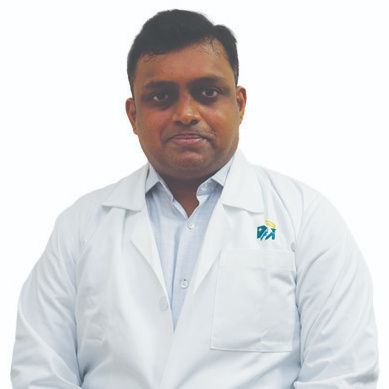
Dr. Kiran K J
General and Laparoscopic Surgeon
18 Years • MBBS, MS, FMAS, DMAS (Fellow & Dip in Min. Access surg.), FALS- Bariatric & Robotic Surgery
Bengaluru
Apollo Hospitals Bannerghatta Road, Bengaluru
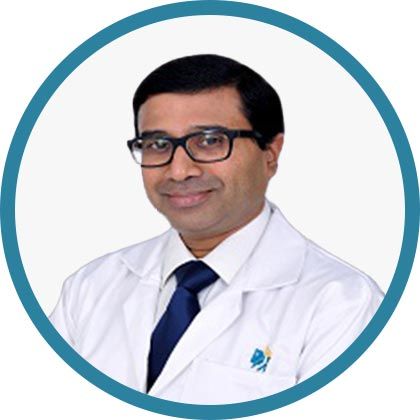
Dr. Premkumar Balachandran
General and Laparoscopic Surgeon
22 Years • MBBS, MS, FICS, DMAS, FMAS, FRS, FIAGES, Dip. ALS, FCP
Chennai
Apollo Hospitals Greams Road, Chennai
150+ recommendations
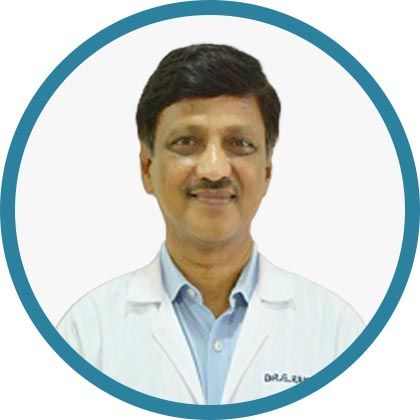
Dr. G Ramesh Babu
General and Laparoscopic Surgeon
25 Years • MBBS, MS(Gen Sur)& nbsp
Hyderguda
Apollo Hospitals Hyderguda, Hyderguda

Dr. Raj Palaniappan
Bariatrician
22 Years • MBBS, MS, MMAS, FICS (Gastro), FMAS, DMAS, FALS, FRS, FLS
Chennai
Apollo Hospitals Greams Road, Chennai

Dr. Naresh Babu
General Surgeon
24 Years • MBBS, MS (Surg.)
Bengaluru
Apollo Hospitals Jayanagar, Bengaluru

Dr. Satyajit Godhi
General and Laparoscopic Surgeon
12 Years • MBBS, MS, Mch
Bengaluru
Apollo Hospitals Bannerghatta Road, Bengaluru
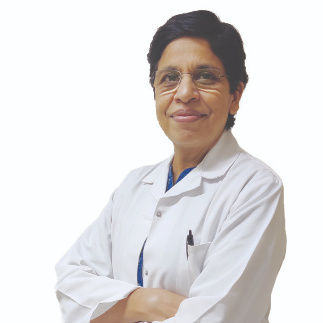
Dr. Swati Upadhayay
General Surgeon
27 Years • MBBS, MS, FICS(GEN.Surg.)
Ahmedabad
Apollo Hospitals Gandhinagar, Ahmedabad
Dr Sumanth R
General Physician
2 Years • MBBS
Bengaluru
Apollo Clinic, Sarjapur Road, Bengaluru
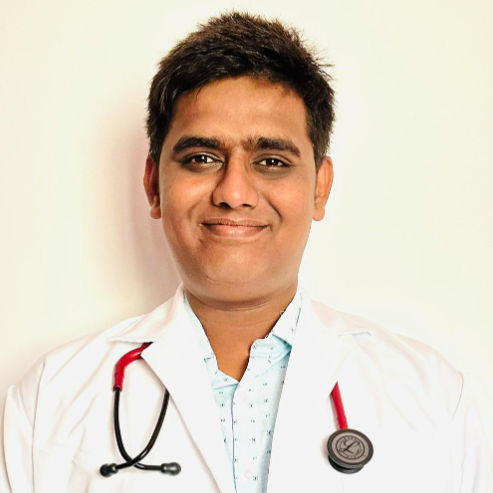
Dr. Sushith C
General Physician
2 Years • MBBS
Bengaluru
PRESTIGE SHANTHINIKETAN - SOCIETY CLINIC, Bengaluru
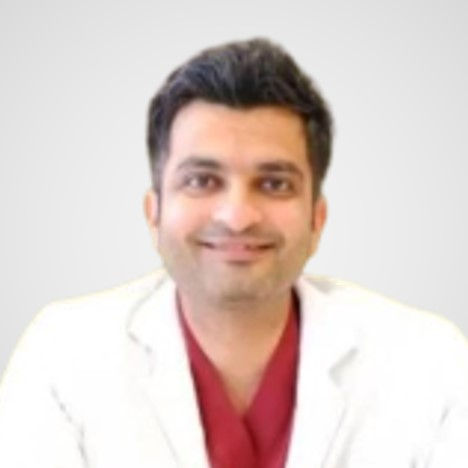
Dr Anubhav Chittari
General Surgeon
3 Years • MBBS, M.S GENERAL SURGERY
Bengaluru
Apollo Clinic, Sarjapur Road, Bengaluru
Dr. Debojyoti Sarkar
General Surgeon
12 Years • MBBS, DNB (General Surgery), FIAGES in Minimal Access surgery
New Delhi
RAINBOW WELLNESS CENTRE, New Delhi
Dr. Arnab Nandi
General Surgeon
7 Years • MBBS, MS (General Surgery), DNB General Surgery
Kolkata
Dr Hazra's Clinic, Kolkata
Book Consult for General Surgery Online
Booking an appointment with a general surgeon at Apollo 24|7 is quick and convenient. Our platform offers access to top general surgeons who specialise in various surgical procedures, including hernia repair surgery, appendicitis surgery, and gallbladder removal. You can easily schedule an online general surgeon consultation or book an in-person appointment at trusted hospitals and clinics near you. With flexible appointment slots and transparent cosmetologist fees, Apollo 24|7 ensures you receive the best surgical care from experienced surgeons. Read general surgeon reviews and search for the phrase general surgeon near me to find a specialist near your location to address your surgical needs.
What is General Surgery?
General surgery is a diverse surgical speciality that focuses on diagnosing, treating, and managing a wide range of conditions affecting various parts of the body. This speciality encompasses diseases and disorders related to the digestive tract, endocrine system, breast, skin, and soft tissues. General surgeons treat conditions such as appendicitis, hernias, gallbladder diseases, and certain types of cancer. The field of general surgery plays a crucial role in healthcare, as it addresses both acute and chronic conditions that require surgical intervention, often serving as the first line of surgical care in emergency situations and significantly improving patient outcomes and quality of life.
Who is a General Surgeon?
A general surgeon is a highly trained medical professional who specialises in diagnosing and treating a broad spectrum of surgical conditions. In the Indian subcontinent, general surgeons complete an MBBS degree followed by a Master of Surgery (MS) in General Surgery or a Diploma in General Surgery (DGS). They are equipped to manage conditions related to the digestive tract, endocrine system, breast, skin, and soft tissues, as well as provide care for pediatric and cancer patients. Gallbladder surgeons and hernia specialists play a vital role in diagnosing and treating diseases through various surgical procedures, from emergency surgeries to elective ones. Additionally, the doctor for appendicitis surgery and the doctor for hernia repair surgery contribute to preventive healthcare by identifying and treating conditions early and educating patients on lifestyle changes and preventive measures.
What Do General Surgeons Do?
General surgeons are highly skilled medical professionals who provide a wide range of surgical services. As surgeons specialising in various surgical procedures, they play a crucial role in diagnosing and treating conditions that require surgical intervention. Some of the key responsibilities of general surgeons include:
Performing hernia repair surgery as a hernia specialist to treat different types of hernias
Acting as a gallbladder surgeon to treat gallbladder diseases and perform gallbladder removal surgery
Serving as a doctor for appendicitis surgery to diagnose and treat acute appendicitis
Conducting diagnostic tests and procedures to evaluate patients' conditions and determine the best course of treatment
Performing minimally invasive surgeries, such as laparoscopic procedures, to minimise patient discomfort and recovery time
Collaborating with other surgeons to provide comprehensive patient care and ensure optimal outcomes
What are the other Sub-Specialities of General Surgery?
General surgery encompasses several sub-specialities that focus on specific areas within the broader field. These sub-specialities include:
Trauma Surgery: This sub-speciality deals with the surgical management of patients who have suffered traumatic injuries, such as those resulting from accidents or violence.
Colorectal Surgery: Colorectal surgeons specialise in treating conditions affecting the colon, rectum, and anus, including colorectal cancer, inflammatory bowel disease, and anorectal disorders.
Endocrine Surgery: This sub-speciality focuses on the surgical treatment of disorders related to the endocrine system, such as thyroid, parathyroid, and adrenal gland diseases.
Hepatobiliary Surgery: Hepatobiliary surgeons treat conditions affecting the liver, gallbladder, and bile ducts, including liver cancer, gallstones, and bile duct disorders.
Bariatric Surgery: This sub-speciality deals with surgical procedures aimed at helping patients with severe obesity achieve weight loss and improve their overall health.
Gastrointestinal Surgery: Gastrointestinal surgeons treat conditions affecting the digestive tract, such as gastric ulcers, inflammatory bowel disease, and gastrointestinal cancers.
Minimally Invasive Surgery (Laparoscopic Surgery): This sub-speciality involves performing surgical procedures using small incisions and specialised instruments, resulting in less pain, faster recovery, and reduced scarring compared to traditional open surgery.
Surgical Oncology: Surgical oncologists specialise in the surgical management of various types of cancer, working closely with other oncology specialists to provide comprehensive cancer care.
Pediatric Surgery: This sub-speciality focuses on the surgical treatment of conditions affecting infants, children, and adolescents, including congenital anomalies and acquired disorders.
Thoracic Surgery: Thoracic surgeons treat conditions affecting the chest, including the lungs, oesophagus, and chest wall, such as lung cancer, oesophagal disorders, and chest trauma.
What are the Examinations Conducted Under General Surgery or Tests Performed by a General Surgeon?
General surgeons perform a variety of examinations and tests to diagnose and evaluate patients' conditions. Some of the most common examinations and tests include:
Physical Examination: General surgeons conduct thorough physical examinations to assess patients' overall health and identify any signs or symptoms related to their condition.
Imaging Tests: Various imaging techniques, such as X-rays, ultrasounds, CT scans, and MRI scans, are used to visualise internal organs and structures, helping general surgeons diagnose and monitor conditions.
Endoscopic Procedures: General surgeons use endoscopes, which are thin, flexible tubes with a camera and light source, to examine the inside of the digestive tract, including the oesophagus, stomach, and intestines. Common endoscopic procedures include colonoscopy, gastroscopy, and endoscopic retrograde cholangiopancreatography (ERCP).
Biopsy: When a suspicious tissue or mass is identified, general surgeons may perform a biopsy, which involves removing a small sample of the tissue for laboratory analysis to determine the presence of cancer or other abnormalities.
Blood Tests: General surgeons may order various blood tests to evaluate patients' overall health, detect infections, or assess organ function, such as liver and kidney function tests.
Urinalysis: Urine tests can help general surgeons identify signs of infection, kidney problems, or other health issues that may be related to the patient's condition.
What are the Common Conditions & Diseases that General Surgeons Treat?
General surgeons treat a wide range of conditions and diseases, particularly those affecting the abdomen, breasts, digestive system, endocrine system, and skin. Some of the most common conditions they manage include:
Appendicitis: Inflammation of the appendix, requiring surgical removal (appendectomy) by a doctor for appendicitis surgery.
Gallbladder diseases: Conditions such as gallstones and cholecystitis, are often treated by a gallbladder surgeon through surgical removal of the gallbladder (cholecystectomy).
Hernias: Protrusions of tissue or organs through weak spots in the abdominal wall, repaired by a hernia specialist or doctor for hernia repair surgery.
Breast cancer: General surgeons perform procedures such as lumpectomies and mastectomies to remove cancerous tissue from the breast.
Colorectal cancer: Cancers affecting the colon and rectum, often requiring surgical intervention by a general surgeon.
Thyroid disorders: Conditions such as thyroid nodules and thyroid cancer, are treated by a surgeon through procedures like thyroidectomy.
Skin cancers: Melanoma and other types of skin cancer, often require surgical excision by a general surgeon.
Gastrointestinal disorders: Conditions affecting the digestive system, such as inflammatory bowel disease (IBD) and diverticulitis, sometimes requiring surgery.
Pancreatic disorders: Conditions such as pancreatitis and pancreatic cancer, may necessitate surgical intervention.
Liver diseases: Conditions like liver cancer and cirrhosis, may require surgical treatment by a general surgeon.
Reasons to See a General Surgeon
There are several reasons why you might need to consult a general surgeon. These highly skilled professionals specialise in diagnosing and treating a wide range of conditions that require surgical intervention.
Abdominal pain: Persistent or severe abdominal pain may indicate an underlying condition, such as appendicitis or a hernia, that requires surgical treatment.
Breast lumps: If you discover a lump in your breast, it is essential to have it evaluated by a general surgeon to determine if it is benign or cancerous and to discuss treatment options.
Gallbladder issues: Symptoms like severe abdominal pain, nausea, and vomiting may signal a problem with your gallbladder, such as gallstones, which a gallbladder surgeon can treat through surgical removal of the organ.
Skin lesions: Suspicious moles, growths, or skin lesions should be examined by a general surgeon to rule out skin cancer and determine the best course of action.
Hernias: If you notice a bulge or protrusion in your abdominal wall, it may be a hernia that requires surgical repair by a hernia specialist or doctor for hernia repair surgery.
Gastrointestinal problems: Chronic acid reflux, persistent constipation, or blood in the stool may indicate a gastrointestinal issue that requires surgical intervention by a general surgeon.
What Types of Procedures do General Surgeons Perform?
General surgeons perform a wide array of therapeutic and surgical procedures to treat various conditions and diseases. Some of the most common procedures include:
Appendectomy: Surgical removal of the appendix, typically performed by a doctor for appendicitis surgery.
Cholecystectomy: Removal of the gallbladder, often carried out by a gallbladder surgeon to treat gallstones or other gallbladder diseases.
Hernia repair: Surgical correction of hernias, performed by a hernia specialist or doctor for hernia repair surgery.
Breast surgery: Procedures such as lumpectomies and mastectomies to treat breast cancer or other breast conditions.
Colorectal surgery: Surgical treatment of conditions affecting the colon and rectum, such as colorectal cancer and inflammatory bowel disease (IBD).
Thyroidectomy: Removal of part or all of the thyroid gland to treat thyroid disorders or cancer.
Skin lesion excision: Surgical removal of suspicious moles, growths, or skin lesions to diagnose and treat skin cancer.
Gastrointestinal surgery: Procedures to treat conditions affecting the digestive system, such as gastric bypass surgery for obesity and surgery for gastrointestinal cancers.
Pancreatic surgery: Surgical treatment of pancreatic conditions, including pancreatitis and pancreatic cancer.
Liver surgery: Procedures to treat liver diseases, such as liver cancer and cirrhosis.
Splenectomy: Removal of the spleen to treat various conditions, such as certain blood disorders and cancers.
Trauma surgery: Emergency surgical procedures to treat injuries sustained from accidents or violence.
Vascular surgery: Procedures to treat conditions affecting blood vessels, such as aneurysms and peripheral artery disease.
Endocrine surgery: Surgical treatment of disorders affecting endocrine glands, such as the thyroid, parathyroid, and adrenal glands.
Laparoscopic surgery: Minimally invasive surgical techniques using small incisions and specialised instruments to treat various abdominal conditions.
Why Choose an Apollo 24|7 General Surgeon?
Choosing an Apollo 24|7 general surgeon ensures access to highly skilled and experienced professionals dedicated to providing exceptional care. Our surgeons are renowned for their expertise and qualifications, having undergone extensive training in the field of general surgery.
At Apollo 24|7, we prioritise personalised care, tailoring treatment plans to meet each patient's unique needs. Our state-of-the-art facilities and advanced treatment options enable our doctor for appendicitis surgery and doctor for hernia repair surgery to deliver optimal outcomes and faster recovery times.
We offer seamless access to consultations, allowing you to book general surgeon appointments both online and in-clinic. Our user-friendly platform enables you to access online general surgeon consultations, making it convenient to receive expert advice from the comfort of your home.
With Apollo 24|7, you can trust that you are receiving comprehensive, high-quality healthcare from the best gallbladder surgeon and hernia specialist in the field.
What to Expect When Visiting a General Surgeon?
When you visit a general surgeon, you can expect a thorough evaluation of your condition and a personalised treatment plan. The surgeon consultation typically includes:
Detailed Medical History: The surgeon will review your medical history, including any previous surgeries, medications, and allergies.
Physical Examination: A comprehensive physical exam will be conducted to assess your overall health and the specific area of concern.
Diagnostic Tests: The general surgeon may order tests like blood work, imaging scans, or biopsies to gather more information about your condition.
Discussion of Diagnosis and Treatment Options: Based on the evaluation, the doctor for appendicitis surgery or the doctor for hernia repair surgery will discuss the diagnosis and explain the available treatment options, including surgical and non-surgical approaches.
Personalised Treatment Plan: The general surgeon will work with you to develop a personalised treatment plan tailored to your specific needs and preferences.
Pre-Operative and Post-Operative Instructions: If surgery is necessary, the surgeon will provide detailed instructions on how to prepare for the procedure and what to expect during recovery.
How Can I Get an Appointment With a General Surgeon?
Booking an appointment with a general surgeon at Apollo 24|7 is a simple and convenient process:
Online Booking: Visit the Apollo 24|7 website and navigate to the "Book Appointment" section. Select "General Surgery" from the list of specialities and choose a general surgeon based on their profile, general surgeon reviews, and availability. Follow the prompts to select a suitable date and time for your online general surgeon consultation.
Mobile App Booking: Download the Apollo 24|7 mobile app from the App Store or Google Play Store. Log in or create an account, then select the "Book Appointment" option. Choose "General Surgery" and follow the steps to book a general surgeon appointment at your preferred date and time. You can check the cosmetologist fee on the app and search for the phrase general surgeon near me to find a doctor near your location.
In-Clinic Booking: You can also visit your nearest Apollo 24|7 clinic and request to book a general surgeon appointment at the reception desk. Our staff will assist you in scheduling a consultation with an available general surgeon.
Referrals: If your primary care physician or another specialist has referred you to a gallbladder surgeon or hernia specialist, they may help you schedule an appointment directly.
General Surgeons in top cities
- •Best General Surgeons in Bengaluru
- •Best General Surgeons in Chennai
- •Best General Surgeons in New Delhi
- •Best General Surgeons in Kolkata
- •Best General Surgeons in Hyderabad
- •Best General Surgeons in Ahmedabad
- •Best General Surgeons in Gurugram
- •Best General Surgeons in Delhi
- •Best General Surgeons in Noida
- •Best General Surgeons in Vijayawada
- •Best General Surgeons in Faridabad
- •Best General Surgeons in Guwahati
- •Best General Surgeons in Mumbai
- •Best General Surgeons in Mysuru
- •Best General Surgeons in Patna
- •Best General Surgeons in Pune
- •Best General Surgeons in Bangalore
- •Best General Surgeons in Bhopal
- •Best General Surgeons in Indore
- •Best General Surgeons in Karim Nagar
Related Treatments
- •Treatment for Benign Tumors
- •Treatment for Anal Fissure Treatment Non Surgical
- •Treatment for Appendicitis
- •Treatment for Acute Diarrhea Treatment
- •Treatment for Anal fissure
- •Treatment for Anal fistula
- •Treatment for Astigmatism
- •Treatment for Amyotrophic lateral sclerosis
- •Treatment for Varicocele
- •Treatment for Abdominal Pain
- •Treatment for Abdominal Pain Treatment
- •Treatment for ACL Tear
- •Treatment for acne
- •Treatment for Acute Pancreatitis
- •Treatment for Ankle Fracture
- •Treatment for Ankle Pain
- •Treatment for Ankle Sprain
- •Treatment for Asthma
- •Treatment for Back Pain
- •Treatment for Bad Breath Halitosis Treatment
Related Procedures
- •Doctors for Abdominoperineal resection
- •Doctors for AC Joint arthritis - mumford procedure
- •Doctors for AC Joint repair/ reconstruction
- •Doctors for ACL tears reconstruction
- •Doctors for Acromioplasty or Sub-acromial Decompression
- •Doctors for Adhesiolysis for FROZEN SHOULDER
- •Doctors for Adrenalectomy
- •Doctors for Ankle surgery
- •Doctors for Anti-Reflux Surgery
- •Doctors for Appendectomy
- •Doctors for Arthroscopic Assisted Glenoid / Scapular fracture reduction
- •Doctors for Arthroscopic assisted Tibial plateau Fracture surgery
- •Doctors for Baker’s Cyst Excision
- •Doctors for Bankart/SLAP/GLAD/ Perthes lesion/ ALPSA repair- instability surgery
- •Doctors for Biceps tenotomy / Tenodesis
- •Doctors for Biopsies
- •Doctors for Breast Diseases
- •Doctors for Bunion surgery
- •Doctors for Cartilage ProceduresMicrofracture Chondroplasty / Mosalcplasty/ ACI
- •Doctors for Cholecystectomy
FAQs
What is general surgery?
General surgery is a surgical speciality that focuses on abdominal organs, including the oesophagus, stomach, small intestine, large intestine, liver, pancreas, gallbladder, appendix and bile ducts, and often the thyroid gland. General surgeons perform a wide range of procedures, from simple to complex, using both traditional open and minimally invasive techniques.
What does a general surgeon do?
A general surgeon diagnoses and treats various abdominal conditions, such as hernias, gallstones, appendicitis, and colorectal disorders. They also perform surgeries related to the breast, skin, and soft tissues. General surgeons often collaborate with other specialists to provide comprehensive patient care.
How do I find a good general surgeon near me?
To find a reputable doctor near your location, search the phrase general surgeon near me, start by asking for referrals from your family physician or friends who have undergone surgery. Check the credentials, experience, and general surgeon reviews online. You can also use healthcare provider directories or book an online general surgeon consultation.
What is a gallbladder surgeon?
A gallbladder surgeon is a general surgeon who specialises in treating conditions related to the gallbladder, such as gallstones and inflammation. They perform procedures like laparoscopic cholecystectomy, which involves removing the gallbladder through small incisions using a camera-guided technique.
What is a hernia specialist?
A hernia specialist is a general surgeon who focuses on diagnosing and treating various types of hernias, such as inguinal, umbilical, and incisional hernias. These doctors for hernia repair surgery use open or laparoscopic techniques, depending on the patient's condition and preferences.
How do I find a doctor for appendicitis surgery?
If you suspect you have appendicitis, seek immediate medical attention at a hospital's emergency department. The hospital will assign a qualified doctor for appendicitis surgery to assess your condition and perform appendicitis surgery if necessary. In non-emergency cases, your family physician can refer you to a general surgeon.
What is the cost of consulting a general surgeon?
The consultation fee for a general surgeon varies depending on factors such as the surgeon's experience, location, and the complexity of your condition. In India, the fee can range from Rs. 500 to Rs. 2,000 or more. Some surgeons offer online general surgeon consultations, which may have a different fee structure.
How can I book an appointment with a general surgeon?
You can book an appointment with a general surgeon by calling their office directly or online general surgeon consultation. Some hospitals and clinics also offer the option of online general surgeon consultation through their website or mobile app.
What should I expect during a consultation with a general surgeon?
During a consultation, the general surgeon will review your medical history, perform a physical examination, and discuss your symptoms and concerns. They may order diagnostic tests, such as blood work or imaging scans, to better understand your condition. The surgeon will then propose a treatment plan, which may include surgery or other interventions.
How can I prepare for a general surgery procedure?
To prepare for a general surgery procedure, follow your surgeon's pre-operative instructions carefully. This may include fasting for a specified period, stopping certain medications, and arranging for transportation and post-operative care. Inform your surgeon about any allergies, medications, or medical conditions you have to ensure a safe and successful procedure.